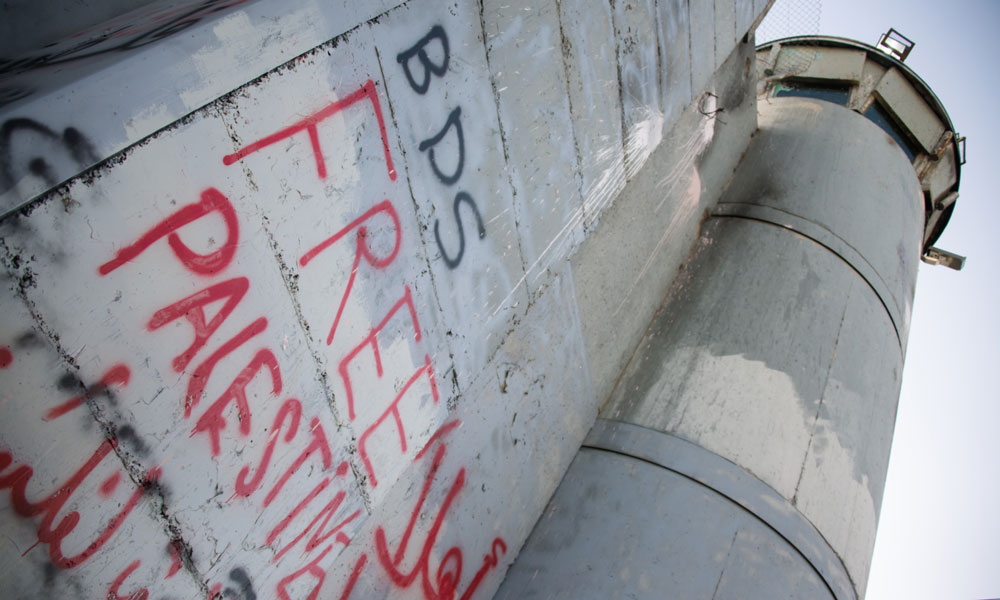
Women’s Studies Group Strongly Favors Israel Boycott
In the latest setback for Israel in the academic world, the National Women’s Studies Association threw its formal support behind the boycott, divestment, and sanctions movement against the country—a move widely supported in a member vote.
Academia’s latest effort to protest Israel may not be the largest to date—that honor goes to the American Anthropological Association, which is expected to vote on the issue in the spring—but it goes a lot further than most have.
Members of the National Women’s Studies Association (NWSA) last week voted to approve an official protest of Israel. But rather than limiting the protest to Israeli academic institutions, a tactic that, on its own, has proved controversial, the association also pledged its full support for the boycott, divestment and sanctions (BDS) of Israel. The BDS movement, first called for by Palestinian nongovernmental organizations in 2005, is intended to evoke strategies used during anti-apartheid campaigns against South Africa.
“As feminist activists, scholars, teachers, and public intellectuals who recognize the interconnectedness of systemic forms of oppression, we cannot overlook the injustice and violence, including sexual and gender-based violence, perpetrated against Palestinians,” the NWSA resolution states. “This resolution is an act of transnational solidarity aimed at social transformation for a better world.”
The vote drew in 35 percent of the association’s total membership, of which 88.4 percent favored the resolution.
Feminists for Justice in/for Palestine, a splinter group of NWSA, helped lead the campaign. In comments to Inside Higher Ed, the group’s cofounder, Simona Sharoni, emphasized that the intent of the resolution was to tie the goals of feminism to those of the plight in Palestine.
“We’re basically redefining feminism and putting solidarity with Palestine into that definition of what it means to be a feminist,” Sharoni said.
Sharoni, a professor of gender and women’s studies at the State University of New York at Plattsburgh, added that the vote strongly favoring the measure “underscores the fact that boycott, divestment and sanctions can be or is seen by members of our association as an example of expressing feminist solidarity.”
A Dissenting View
At least one NWSA member has publicly criticized the vote, however. Janet L Freedman, a resident scholar at the Women’s Studies Research Center at Brandeis University, raised significant concerns about the measure prior to its passage and felt that the issue had not been offered a proper forum among NWSA’s membership—with the official one offered by the association, in her view, failing to offer commentary from an Israeli member of the organization.
Freedman, who describes herself as a “progressive, feminist, pro-Israel, pro-Palestinian, pro-peace Jew” and is a former head of the association’s Jewish Caucus, attempted to offer a forum of her own at the association’s most recent conference, but said she struggled to make an impact.
“As the conference proceeded I became aware that the content of the resolution before the organization was irrelevant to most members. In fact, almost everyone with whom I spoke had not even read the resolution,” she wrote in an op-ed piece for Forward, a Jewish-culture magazine. “In retrospect, I realize that support for both Israelis and Palestinians to live in peace and dignity and the encouragement of exchanges that respect all those involved are not goals of this resolution.”
NWSA is far from the first organization to support a boycott of Israel. The American Studies Association effectively started a trend—and became the subject of controversy—when it approved an academic boycott in 2013.
Graffiti on the Israeli separation wall dividing the West Bank town of Bethlehem promotes the BDS (boycott, divestment, sanctions) movement. (iStock Editorial/Thinkstock)






Comments